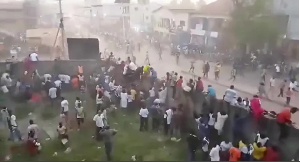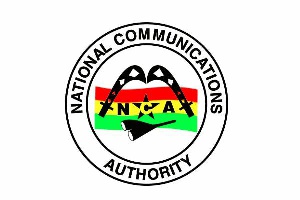POOR Enugu Rangers! They fell victim to an orthodox mode of tie-breaking employed by the Confederation of African Football (CAF) in the maiden edition of the Confederation Cup. Their dream of returning to a Continental Cup final after 27 years of absence suddenly went up in smokes.
Enugu Rangers last graced the final stage of a continental inter-clubs competition in 1977 when Christian Chukwu lifted the now rested African Winners' Cup.
It topped the Group A of the inaugural edition of the Confederation Cup competition on account of superior goal-difference to that of Ghana's Kumasi Asante Kotoko. Enugu Rangers had +6 goal difference while Kotoko had +3.
Both finished their group games with 10 points each. But CAF awarded the final ticket to Asante Kotoko of Ghana on account of the results of their head-to-head confrontation. This is in compliance with the Regulations of Inter-Clubs Competition 2002-2004. The decision has set the stage for an all-Ghanaian cup final.
The decision is, however disputable. The regulations are the one drafted for the now rested African Winners' Cup and the CAF Cup competitions.
The relevant portion, the Section 111, Article 4 paragraph 7 of the regulations reads:
"In case of equality of points after all the group matches have been played, the classification of the teams shall be established according to the following criteria:
Greater number of points obtained in the matches between the concerned teams.
Goal difference resulting from the matches between the concerned teams.
Greater number of goals scored away from home in matches between the concerned teams.
Superior goal difference from all the matches played in the group.
Greater number of goals scored in all the matches played in the group".
The format adopted puts the cart before the horse and is quite different from the tie-breaker employed in other competitions by even, CAF itself and FIFA.
For instance, in the African Nations Cup, in similar circumstance, the regulations read: "In case of equality of points between more than two teams after the preliminary group matches, the classification of teams shall be established according to the best goal difference."
Had this conventional method which is employed in all competitions including the FIFA World Cup, the youth competitions and the women football championships, being employed in the Confederation Cup, Enugu Rangers and not Asante Kotoko, would have made it to the final.
The technical point here is that the Confederation Cup has no regulations! The employment of regulations of scrapped competitions is therefore contestable.
In the absence of a valid regulations for the Confederation Cup, the CAF Statutes come into relevance. The present Enugu Rangers/Kotoko situation falls under "Unforeseen Circumstances" as in Article 36 of CAF Statutes since there are no documents that specifically enunciate the regulations for the Confederation Cup. CAF Statutes explain:
"All cases not provided for by the present Statutes or cases of force majeure shall be decided:
1) In accordance with FIFA Statutes in as much as they provide for the case in question."
Regulations for all FIFA competitions, especially that dealing with the Confederations Cup competition. It reads: "The ranking of each team in each group (there are two as in CAF Confederation Cup) shall be determined as follows:
"A) greatest number of points obtained in all group matches.
b) Goal difference in all group matches.
c) Greatest number of goals scored in all group matches
"If two or more teams are equal on the bases of the above three criteria, their rankings shall be determined as follows:
d) Greatest number of points obtained in the group matches between the teams concerned
e) Goal difference resulting from the group matches between the teams concerned.
f) Greatest number of goals scored in the group matches between the teams concerned
g) Drawing lots by the FIFA Organising Committee".
From the above, Enugu Rangers should have been declared the Group A leaders right from step (b), having a better goal difference than Asante Kotoko. It is when goal-difference is not decisive that results of direct confrontation become relevant.
















